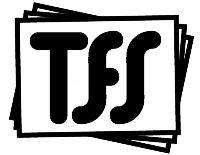How do I use these?
Depends on what your goals are! But here's how we (the linguists in the "TFS Working Group") use them:
The "storyboard" technique is a language data collection technique that tries to gather authentic speech with as little influence from English as possible.
Rather than ask "How do I say..." again and again, we draw out a story and ask our speaker to narrate it for us.
Sometimes it takes a run-through or two in English first, so the speaker can get the plot of the story down. Once that's done, however, we try not to use English again as the story's being narrated.
The reason for this is that sometimes, people prompted in English will respond with more English-like words or sentence structures. What we find most interesting, though, is how the language is really structured, so we try to present as much in pictures as we can so that there's not too much English influence.
How can I use these?
Can I change these stories, or use pieces of them for my own work?
Yes! These stories are licensed under a Creative Commons license that allow you to make your own works based on these.
In doing so, you can change them -- use the images without the text, change the order, or make up your own story altogether. You could make educational materials, or exams, or games.
Can I publish the results of my changes?
Yes, so long as you cite the original work appropriately. On each storyboard page there's an example citation for you to use.
You can publish it commercially, too, and even make a profit.
Do I have to license my derivative work with an open license as well?
No, you can license it however you'd like. We have not added any "share-alike" or "viral" clause to our licensing (which would mean you have to license your work the same as the original.)
Our license, for example, allows commercial use of the content, because we want there to be few barriers to communities turning these into published language materials. But you might not want your version, with your language in it, to be used commercially by other people. Likewise, you may not want to allow other people to make derivative works from your version.
That's why we don't require you license your work the same way as these originals. These are meant for sharing, but yours might not be.
How can't I use these works?
You can't use the work in opposition to the moral rights of original author(s) (cf. Copyright Act of Canada, Section 14.1).
What that means for our purposes is that you can't distort the message or intent of the work in order to defame anyone, or to make offensive works, or otherwise use the content in a way that violates the integrity of the work as the author intended it.
Our general intent for these works is that they be used as aides to help you record or study or share or teach or promote language. So long as your intents are in the same general direction, we're probably fully behind you on it. If you're unsure, go ahead and contact us.



